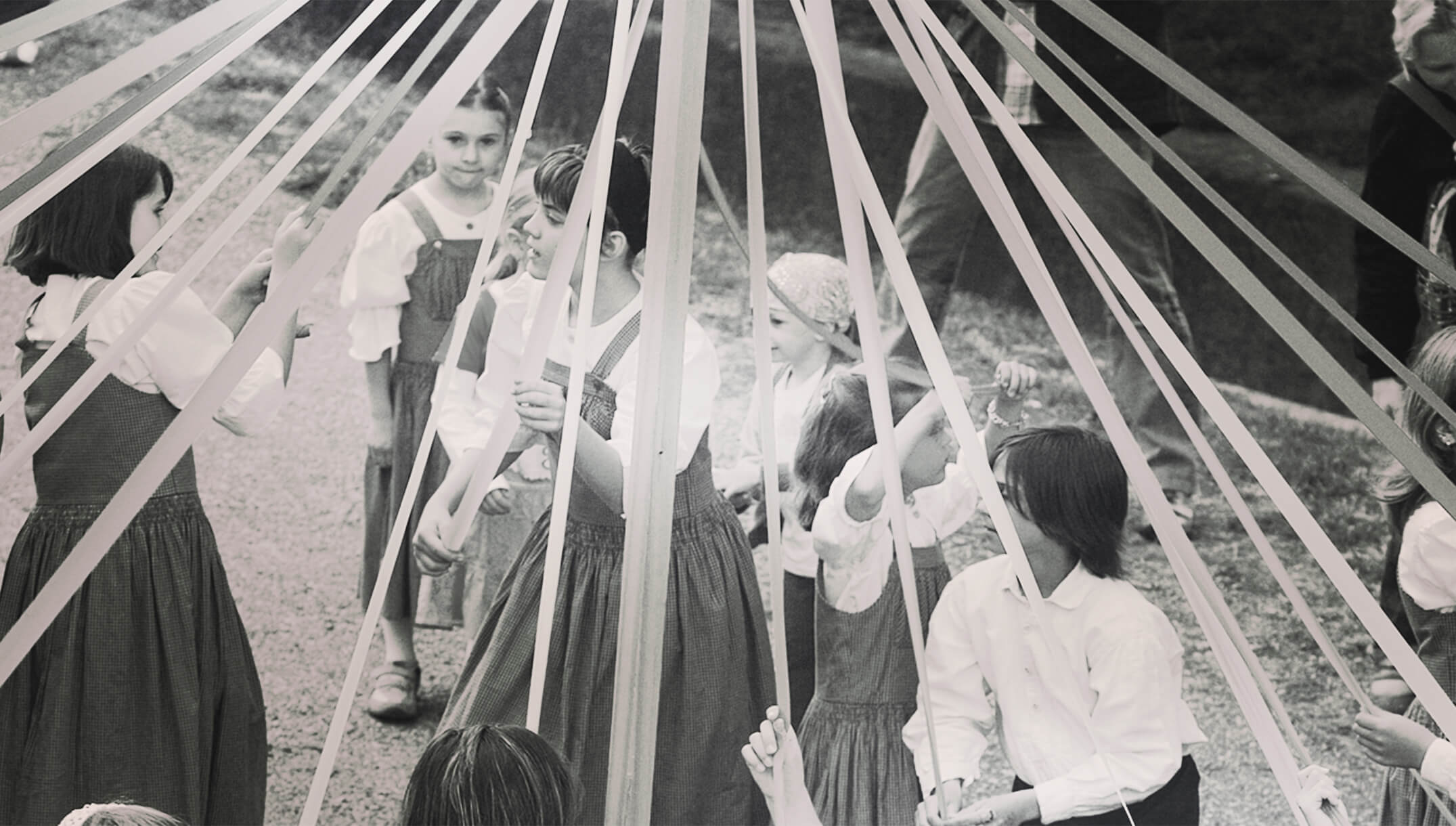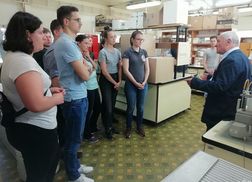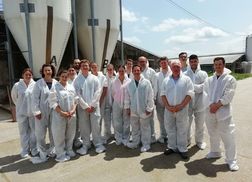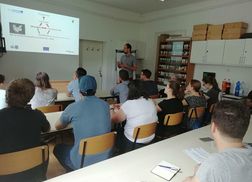Vetmeduni students visit University of Pannonia
The programme of the first day included presentations by lecturers of the Department of Animal Sciences of UP.
László Pál, CEPI project staff member, introduced the university and the Georgikon Faculty. Dr. Pál described the available infrastructure and the current research activities carried out at the Department of Animal Sciences, and also outlined the most important features of the Hungarian poultry sector.
CEPI staff member Andor Molnár talked about the novel DNA-sequencing based examination method of the microbiom, the microorganisms living in the digestive system of poultry species. In his presentation titled „New perspectives in the microbiome analysis – application of the next generation sequencing in poultry nutrition” dr. Molnár introduced the latest results achieved by the CEPI working group by the application of this method.
László Pál, poultry nutrition work package coordinator of CEPI in his presentation titled „Recent research activities in poultry nutrition” outlined the latest findings of the research activities of the CEPI working group regarding poultry nutrition technology development, poultry gut health, the nutritive value of feedstuffs as well as nitrogen and phosphorus emissions.
Both topics represent important and practical aspects of poultry nutrition and poultry health, which are only marginally or not at all included in the course materials of veterinary students.
After the presentations, the students visited the feedstuff analytical laboratory, where key analytical procedures and the related equipment were introduced. The viscosimeter, a special device for viscosity measurement as well as the bomb calorimeter, both equipment purchased from project resources, were introduced in detail. Both analytical measurements provide essential information during poultry health and poultry nutrition examinations.
In the experimental animal house, students received information on the crucial aspects of rearing conditions in animal houses, as well as those of animal trial management.
The guests could see the conditions of digestion trials, and had the opportunity to see a phase of the ongoing sample collection procedure, which included the collection of intestine contents from the small intestine of hens.
The first day was closed by a common programme on the Balaton lake resort of UP.
On the second day, the team visited the hatchery of Gallus Ltd. in Devecser. This company owns the best equipped and most modern hatchery with the greatest capacity in the region.
The company operates a so-called integrated production system covering a whole range of activities „from field to table”, that is, from producing its own crops to feed its own flocks to making the final meat products ready to cook. In order to be able to supply the system with the necessary amount of feedstuffs, the company keeps contract-based contacts with a network of crop producers (cooperatives as well as private farms) in the area of - among others - Vas, Zala and Győr-Moson-Sopron counties. The slaughterhouse and meat processing plant belonging to the company is in Sárvár. This exemplary structure is not a widely spread practice in the region.
The operation of the company was introduced by Roland Szita, production manager; and hatching technologies were presented by Kornél Humpók, head of the hatchery. In response to the questions raised, detailed information was provided for the veterinary students about the hatching process as well as about vaccination routines.
The professional part of the programme was closed by a visit to the turkey farm of Pannon Turkey Ltd. Here, Gábor Molnár, owner of the farm, presented the premises where turkeys of different ages are reared in different housing systems. Students received detailed information on the practical aspects of turkey farming and on major challenges of the sector.
The exchange programme ended with lunch in the Dabróka Csárda.





